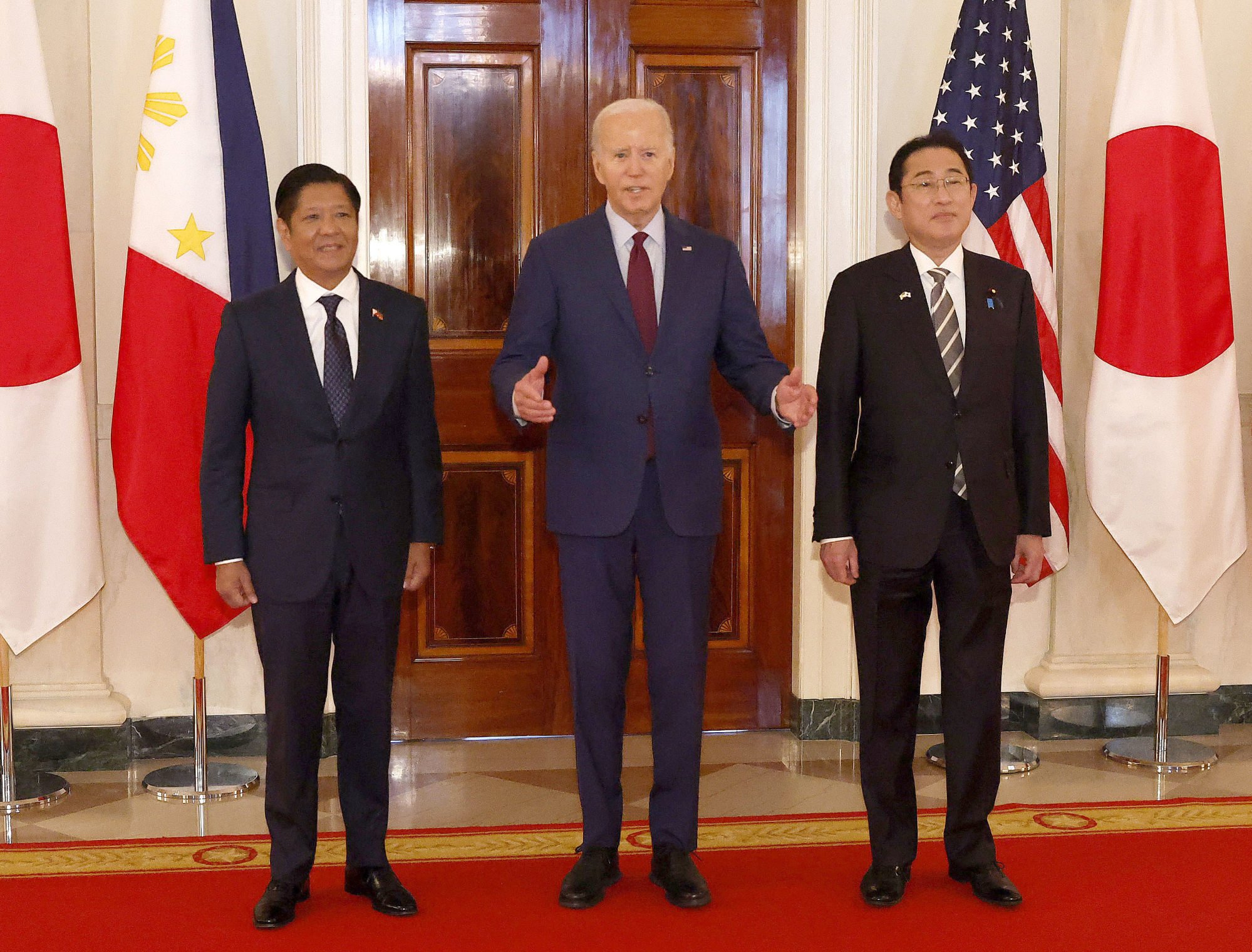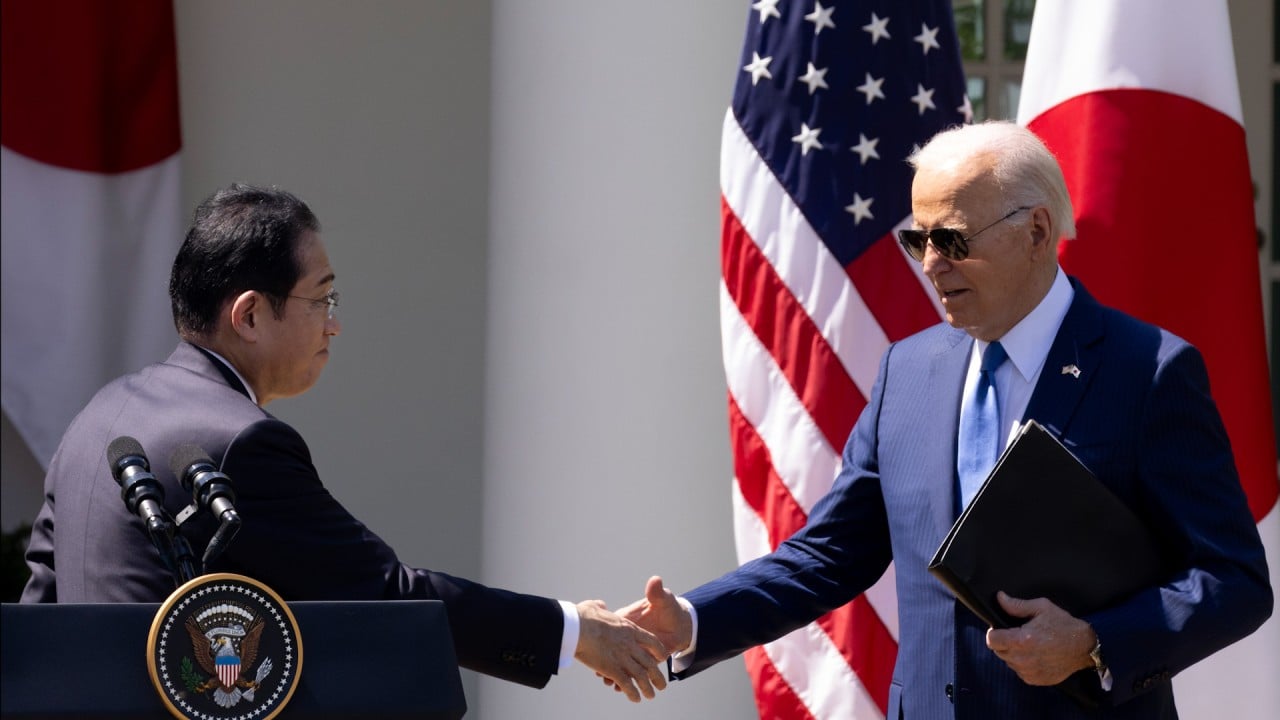China has “no reason” to view the first-ever trilateral summit between the US, Japan and the Philippines as a threat, a top White House official said on Friday.
“These meetings were not about any one other nation. This was about deepening and revitalising existing alliances and partnerships and strengthening some new ones,” said John Kirby, the White House national security spokesman.
Describing the expansion of defence and economic engagements between the three long-term allies merely as an exercise to explore “mutual opportunities” in the strategic Indo-Pacific region, he added that “there’s no reason for the PRC to look at this as any kind of a threat”.
In recent years, Washington has worked to create a network of allies with security blocs and mutual defence agreements to offset what it calls a growing threat from Beijing in the contentious South China Sea, East China Sea and Taiwan Strait. China opposes these efforts as “exclusive groupings for bloc confrontation”.
On Thursday, US President Joe Biden hosted his counterpart from the Philippines, Ferdinand Marcos Jnr, and Japanese Prime Minister Fumio Kishida at the White House for talks that involved their separate territorial disputes with China in the region.
The overlapping claims with Japan are focused on Senkaku Islands in the East China Sea, which China calls the Diaoyu Islands, and in the case of the Philippines it’s the Second Thomas Shoal, or Ren’ai Jiao, in the South China Sea.
“When we stand as one, we’re able to forge a better future for all,” Biden said on Thursday before meeting with the leaders, warning that “any attack on Philippine aircraft, vessels or armed forces in the South China Sea would invoke our mutual defence treaty”.
Beijing agrees to South China Sea hotline with Vietnam as Manila tensions spike
Beijing agrees to South China Sea hotline with Vietnam as Manila tensions spike
In the joint statement, they pledged to continue to support each other against Beijing’s “aggressive behaviour” through military build-up and announced plans to conduct trilateral exercises and “other maritime activities” in the Indo-Pacific within the next year.
Manila has encountered rising pressure from Beijing over the contested waters. On March 5, the Chinese coastguard and Chinese maritime militia collided with the Philippine coastguard. And on March 23, Chinese water cannons damaged a Philippine supply vessel and injured some of its crew.
To follow up on commitments made during the summit, American and Filipino foreign and defence ministers and national security advisers met at the State Department on Friday. Kirby said the “first collective meeting” demonstrated “the strength of not only the US-Filipino alliance but of the trilateral cooperation”.

Hours after the trilateral meeting, Beijing summoned Japanese and Filipino diplomats because of what it condemned as their “negative moves” in Washington.
Chinese foreign ministry spokesperson Mao Ning on Friday warned Tokyo and Manila to engage less “in trilateral cooperation at the expense of other countries’ interests”, accusing them of bringing “confrontation in the region”.
“To know whether the trilateral summit and cooperation is truly not aimed at China, the answer is right there in the trilateral statement,” she said. “What else could it be if it’s not a smear and attack against China?”


